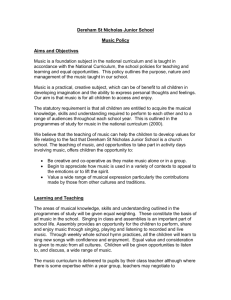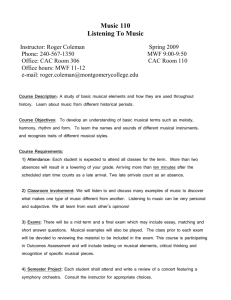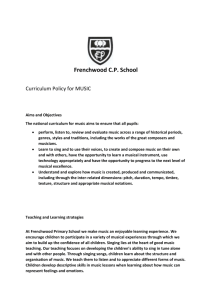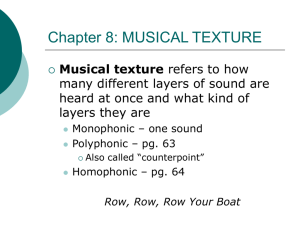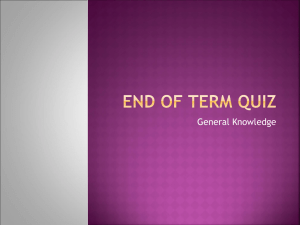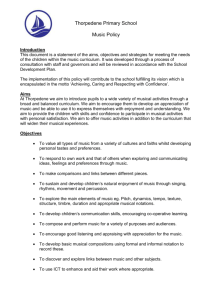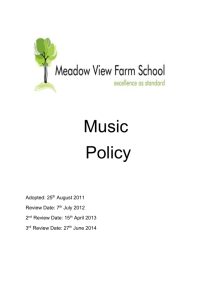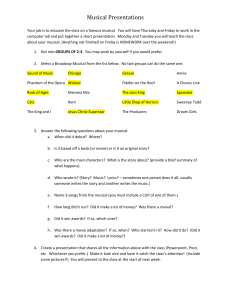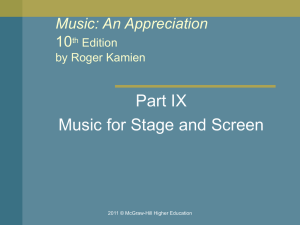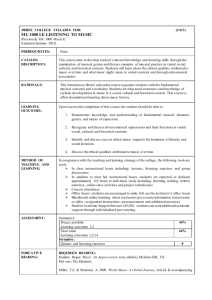Springfield junior School
advertisement
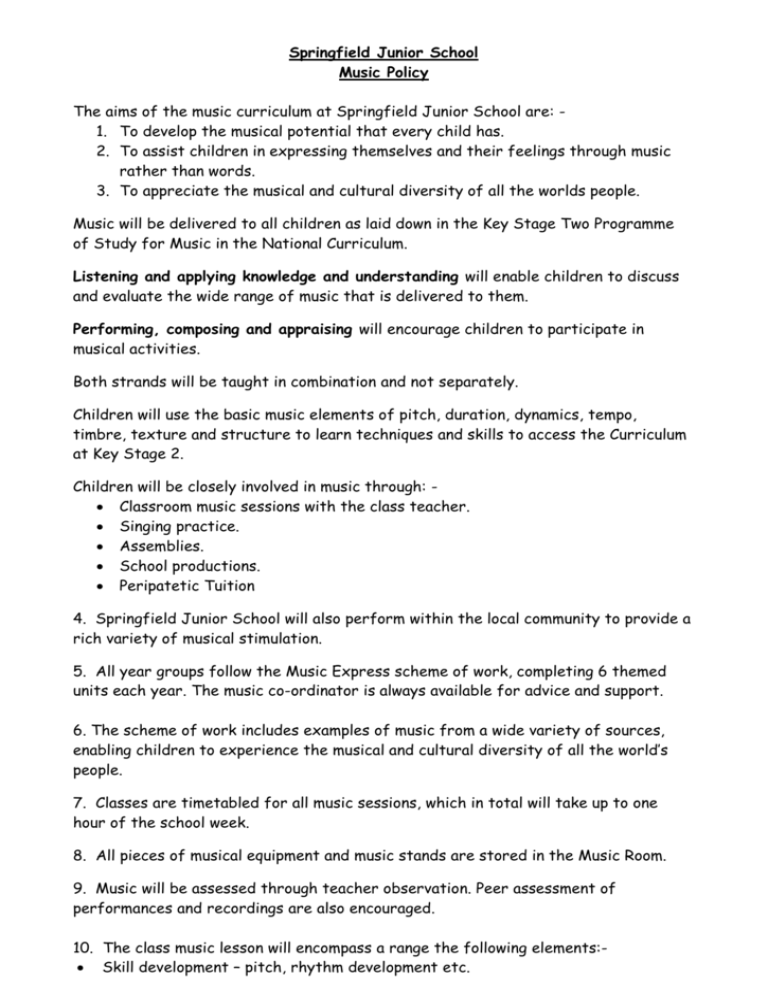
Springfield Junior School Music Policy The aims of the music curriculum at Springfield Junior School are: 1. To develop the musical potential that every child has. 2. To assist children in expressing themselves and their feelings through music rather than words. 3. To appreciate the musical and cultural diversity of all the worlds people. Music will be delivered to all children as laid down in the Key Stage Two Programme of Study for Music in the National Curriculum. Listening and applying knowledge and understanding will enable children to discuss and evaluate the wide range of music that is delivered to them. Performing, composing and appraising will encourage children to participate in musical activities. Both strands will be taught in combination and not separately. Children will use the basic music elements of pitch, duration, dynamics, tempo, timbre, texture and structure to learn techniques and skills to access the Curriculum at Key Stage 2. Children will be closely involved in music through: Classroom music sessions with the class teacher. Singing practice. Assemblies. School productions. Peripatetic Tuition 4. Springfield Junior School will also perform within the local community to provide a rich variety of musical stimulation. 5. All year groups follow the Music Express scheme of work, completing 6 themed units each year. The music co-ordinator is always available for advice and support. 6. The scheme of work includes examples of music from a wide variety of sources, enabling children to experience the musical and cultural diversity of all the world’s people. 7. Classes are timetabled for all music sessions, which in total will take up to one hour of the school week. 8. All pieces of musical equipment and music stands are stored in the Music Room. 9. Music will be assessed through teacher observation. Peer assessment of performances and recordings are also encouraged. 10. The class music lesson will encompass a range the following elements: Skill development – pitch, rhythm development etc. A performing experience, singing or playing, either new or rehearsed material. A directed listening activity – a recording or relevant related material, or listening to others perform. The opportunity to compose. The opportunity to consider their response to the music and to discuss it using musical language and vocabulary. 11. Appropriate use of ICT will be made wherever possible, to create and record sound. 12. Visiting musicians, both professional and amateur will, whenever possible, be invited to contribute to the development of pupils musical skills, knowledge and understanding. 13. Curriculum links with music and the other arts subjects will be made wherever possible. i.e. music and dance, music and poetry, music and art, music and drama. 14. Cultural diversity will be expressed through the musical experiences and opportunities given to the children. 15. Additional music instrument lessons are available to children who show particular interest/aptitude. These include violin, flute, clarinet, electric guitar, bass guitar and drums. 16. Music will be fun. Reviewed January 2009

